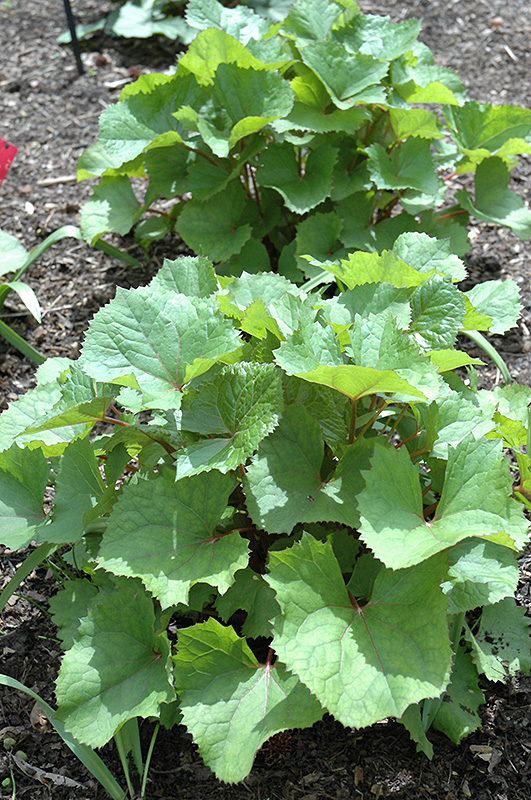Little Lantern Rayflower
Ligularia 'Little Lantern'
Height: 24 inches
Spread: 30 inches
Sunlight:
![]()
![]()
Hardiness Zone: 4a
Description:
Striking conical heads of beautiful golden-yellow flowers rise above rounded dark green foliage that is coarse and airy; an excellent choice for the middle of a border and especially to accent a pond
Ornamental Features
Little Lantern Rayflower features bold spikes of yellow flowers rising above the foliage from mid to late summer. Its large serrated heart-shaped leaves remain dark green in color throughout the season. The deep purple stems are very colorful and add to the overall interest of the plant.
Landscape Attributes
Little Lantern Rayflower is an herbaceous perennial with a rigidly upright and towering form. Its wonderfully bold, coarse texture can be very effective in a balanced garden composition.
This is a relatively low maintenance plant, and is best cleaned up in early spring before it resumes active growth for the season. Deer don't particularly care for this plant and will usually leave it alone in favor of tastier treats. It has no significant negative characteristics.
Little Lantern Rayflower is recommended for the following landscape applications;
- Mass Planting
- General Garden Use
- Bog Gardens
Planting & Growing
Little Lantern Rayflower will grow to be about 20 inches tall at maturity, with a spread of 30 inches. It grows at a medium rate, and under ideal conditions can be expected to live for approximately 20 years. As an herbaceous perennial, this plant will usually die back to the crown each winter, and will regrow from the base each spring. Be careful not to disturb the crown in late winter when it may not be readily seen!
This plant does best in partial shade to shade. It prefers to grow in moist to wet soil, and will even tolerate some standing water. It is not particular as to soil pH, but grows best in rich soils. It is somewhat tolerant of urban pollution. This particular variety is an interspecific hybrid. It can be propagated by division; however, as a cultivated variety, be aware that it may be subject to certain restrictions or prohibitions on propagation.







